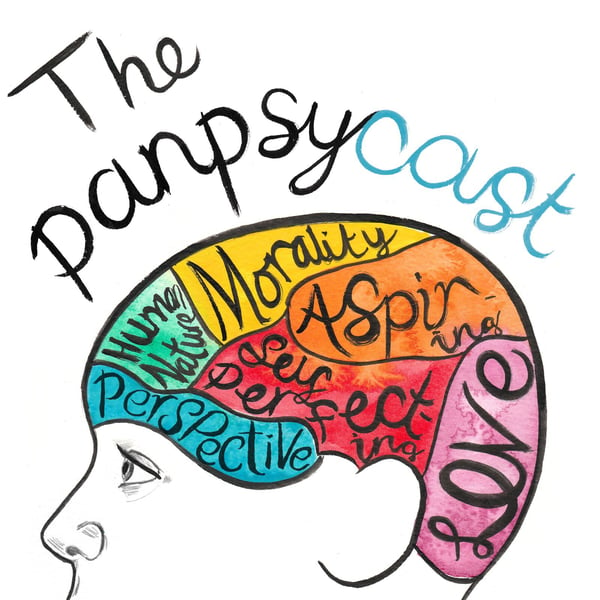Episode 143, ‘The Philosophy of Mental Health’ with Rose Cartwright (Part I - The Maps We Carry)
The Panpsycast Philosophy Podcast
Jack Symes | Andrew Horton, Oliver Marley, and Rose de Castellane
4.8 • 604 Ratings
🗓️ 18 May 2025
⏱️ 36 minutes
🧾️ Download transcript
Summary
We’re living through a mental health crisis. In Europe, use of antidepressant has more than doubled in the past twenty years, and one in five children are now living with a recognised mental health condition. These numbers are striking, and the suffering they reflect personal, and clouded in mystery. But have we always been like this? Or has something shifted – in our politics, our culture, or perhaps in our understanding of what it means to be a person? Is the rise in mental health disorders a product of modern life, or are we simply more willing to talk about them? And what happens when system, designed to help us, ends up making us feel more broken, more stuck, and more alone?
In this episode, we’ll discussing these questions with Rose Cartwright – best-known as the author of Pure, a raw and radical memoir about living with OCD, which went on to become a popular Channel 4 television drama. Today, Rose is a screenwriter on the Netflix show 3 Body Problem, and her latest book, The Maps We Carry, takes a deep dive into the territory of trauma, healing, and the limits of the medical model.
As shall see, Rose’s work explores how our distress is shaped by the stories we tell – and the stories we’re told – about our minds. She asks whether we need new narratives, new frameworks, and even new states of consciousness to understand and transform our inner lives. Drawing on her own experiences – talking therapies, medications, psychedelic journeys, and the spaces in between – Rose invites us to imagine a more expansive approach to mental health. What does that expansive model look like? And is it really necessary? Well – lie back on the couch, take a deep breath… and let’s find out.
Links
Transcript
Click on a timestamp to play from that location
| 0:00.0 | We're living through a mental health crisis. |
| 0:10.0 | In Europe, use of antidepressants has more than doubled in the past 20 years, |
| 0:14.0 | and one in five children are now living with a recognised mental health condition. |
| 0:18.0 | These numbers are striking, and the suffering they reflect is personal |
| 0:22.1 | and clouded in mystery. But have we always been like this or if something shifted in our politics, |
| 0:28.2 | our culture, or perhaps in our understanding of what it means to be a person? Is the rise in mental |
| 0:33.3 | health disorders a product of modern life or are we simply more willing to talk about them? |
| 0:42.7 | And what happens when systems designed to help us end up making us feel more broken, more stuck, |
| 0:43.8 | and more alone? |
| 0:48.6 | In this episode, we'll be discussing these questions with Rose Carwright, best known as the author of Pure, |
| 0:54.5 | a raw and radical memoir about living with OCD, which went on to become a popular Channel 4 television drama. |
| 0:59.6 | Today, Rose is a screenwriter on the Netflix show The Three Body Problem and her latest book, |
| 1:04.3 | The Maps We Carry, takes a deep dive into the territory of trauma, healing, and the limits of the medical world. As we shall see, Rose's work explores how our distress is shaped by the |
| 1:09.2 | stories we tell, and the stories we're |
| 1:11.3 | told about our minds. She asks whether we need new narrative, new frameworks, and even new states of |
| 1:17.3 | consciousness to understand and transform our inner lives. Drawing on our own experiences, |
| 1:22.7 | talking therapies, medications, psychedelic journeys, and the space in between, Rose invites us to imagine |
| 1:28.7 | a more expansive approach to mental health. What does that expansive model look like? And is it |
| 1:33.1 | really necessary? Well, lie back on the couch, take a deep breath and let's find out. Hello and welcome to episode 143 of the Pan-Sycast here on my silent meditation |
| 2:00.7 | britt. Damn it, I've blown it. Never mind, I'm Jack Seines, and I'm delighted to 43 of the panpsychast here on my silent meditation. |
| 1:59.5 | Oh, damn it, I've blown it. Never mind, I'm Jack Seines, and I'm delighted to be joined once again by the biological reality that is Mr. Oli-Mali. Hello. And the MD Amazing Rose Cartwright. Thank you for joining us on the show, Rose. Thank you. I'm very excited to be here. I love that introduction. I think that's the best intro I've ever had on a podcast. |
| 2:00.6 | So there we go. What MDMA? joining us on the show, Rose. Thank you. I'm very excited to be here. Love that introduction. I think that's |
... |
Please login to see the full transcript.
Disclaimer: The podcast and artwork embedded on this page are from Jack Symes | Andrew Horton, Oliver Marley, and Rose de Castellane, and are the property of its owner and not affiliated with or endorsed by Tapesearch.
Generated transcripts are the property of Jack Symes | Andrew Horton, Oliver Marley, and Rose de Castellane and are distributed freely under the Fair Use doctrine. Transcripts generated by Tapesearch are not guaranteed to be accurate.
Copyright © Tapesearch 2025.

